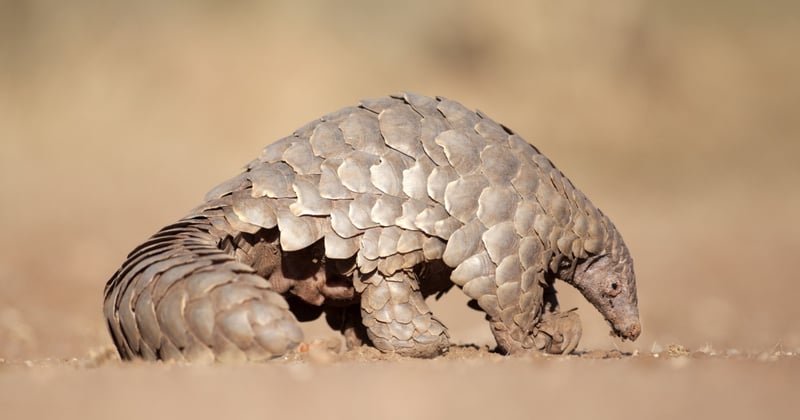
China upgrades pangolin protection and removes scales from traditional medicine list
News
In welcome news, China has not only upgraded the protection of Chinese pangolins to the highest level but has also removed pangolin scales from its traditional medicine pharmacopeia
Header image credit: Adobe Stock
This is a big step forward in our work to end the cruel exploitation of wild animals and the global wildlife trade.
While this is a significant announcement, there is still more to be achieved. We want to see all wildlife removed from the pharmacopeia to end the suffering of countless animals and to reduce the spread of disease to humans.
Brink of extinction
Pangolins have been pushed to the brink of extinction by illegal hunting for their meat and scales.
Gilbert Sape, our head of campaign, bears and traditional medicine, says:
“The removal of pangolin – the world’s most endangered animal, as a raw material from the Chinese pharmacopeia was hugely welcomed, but it is disappointing to see pangolin allowed as an ingredient for few patent medicines.
“This tragic contradiction will continue to drive the demand and illegal trade of pangolins in future. In 2019 alone, Chinese customs confiscated an enormous 123 tonnes of pangolin scales1.
“This is not the first time that wild animal materials have been removed from the pharmacopeia, but their ingredients remain in some patent drugs such as bears and leopards, a policy loophole that which may encourage illegal trade.
“The Chinese government must overhaul relevant policies, destroy the stockpiles of pangolin scales and phase-out patent drugs containing pangolin, bear and leopard parts, to provide these animals the level of protection they deserve.
“A permanent ban on wildlife trade is the only long-term solution to protecting wild animals, eliminating animal suffering, and all importantly, preventing the next major pandemic.”
Possible coronavirus host
Pangolins – thought to be the most trafficked mammal on earth – have been in the spotlight since the start of the coronavirus COVID-19 pandemic, as it is believed they could have been an intermediate host that transmitted the virus to humans.
More than 70% of emerging zoonotic infectious diseases come from wildlife, meaning the demand for wild animals puts us all at risk.
We must end global wildlife trade
“A permanent ban on all wildlife trade is the only long-term solution to keeping wild animals wild, eliminating animal suffering, and all importantly, preventing major health epidemics,” Gilbert added.
Thank you for supporting our ongoing work to keep all wild animals in the wild where they belong.
“A permanent ban on all wildlife trade is the only long-term solution to keeping wild animals wild, eliminating animal suffering, and all importantly, preventing major health epidemics.